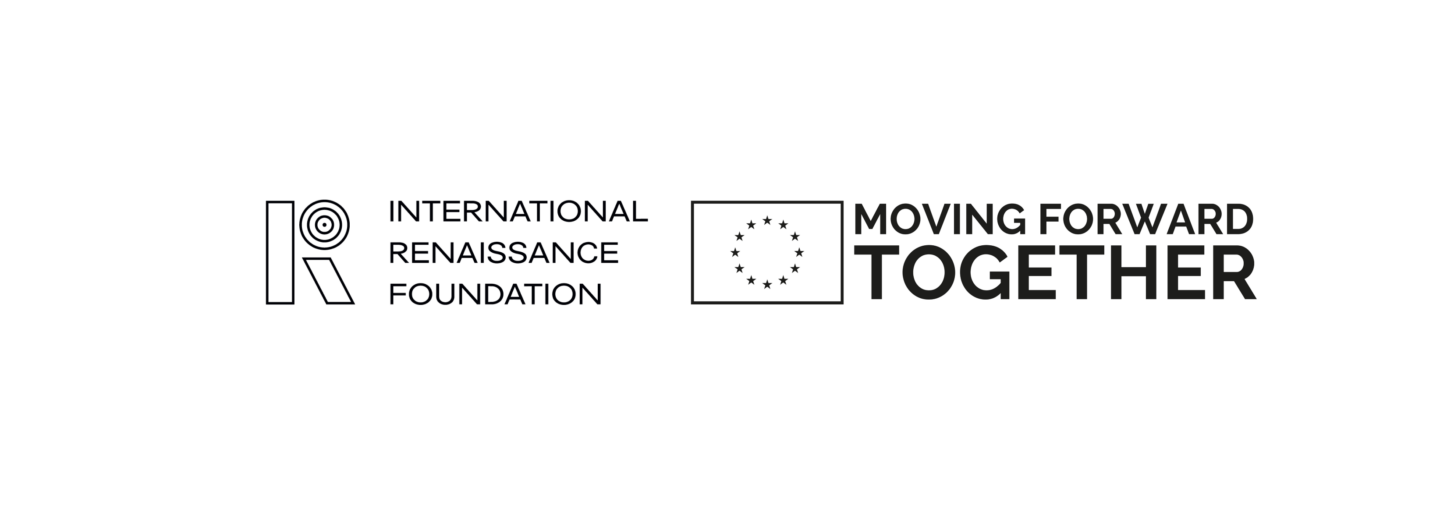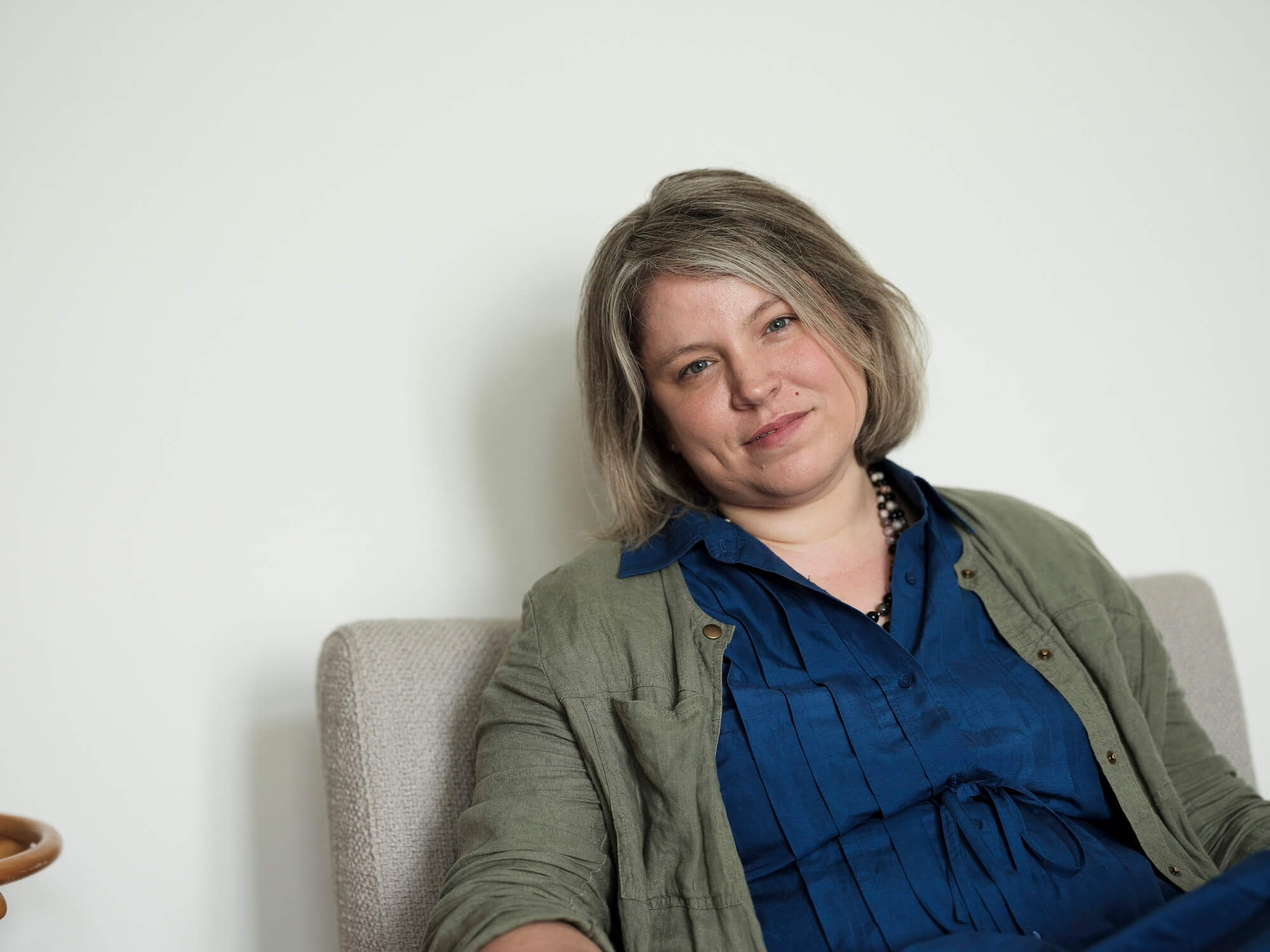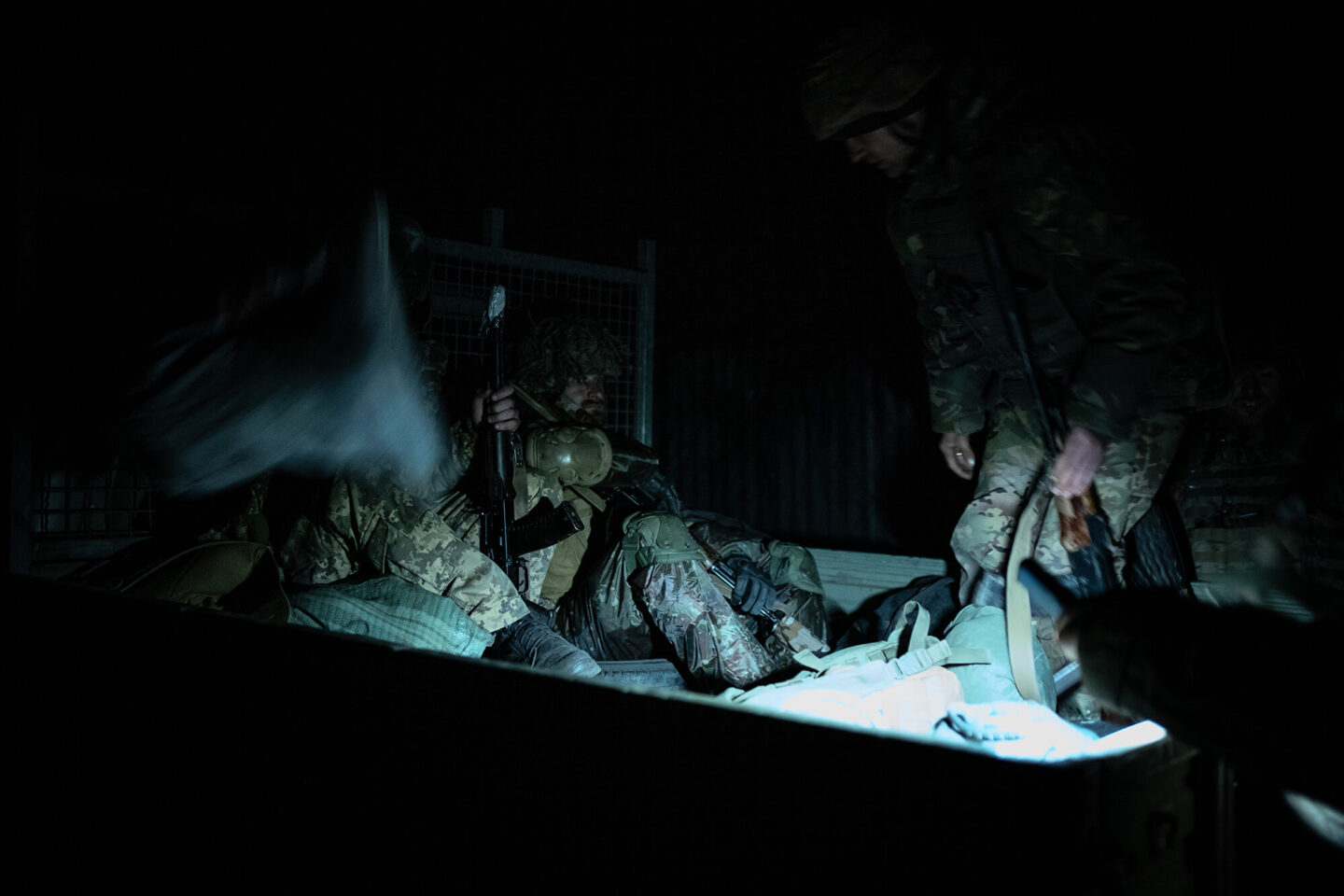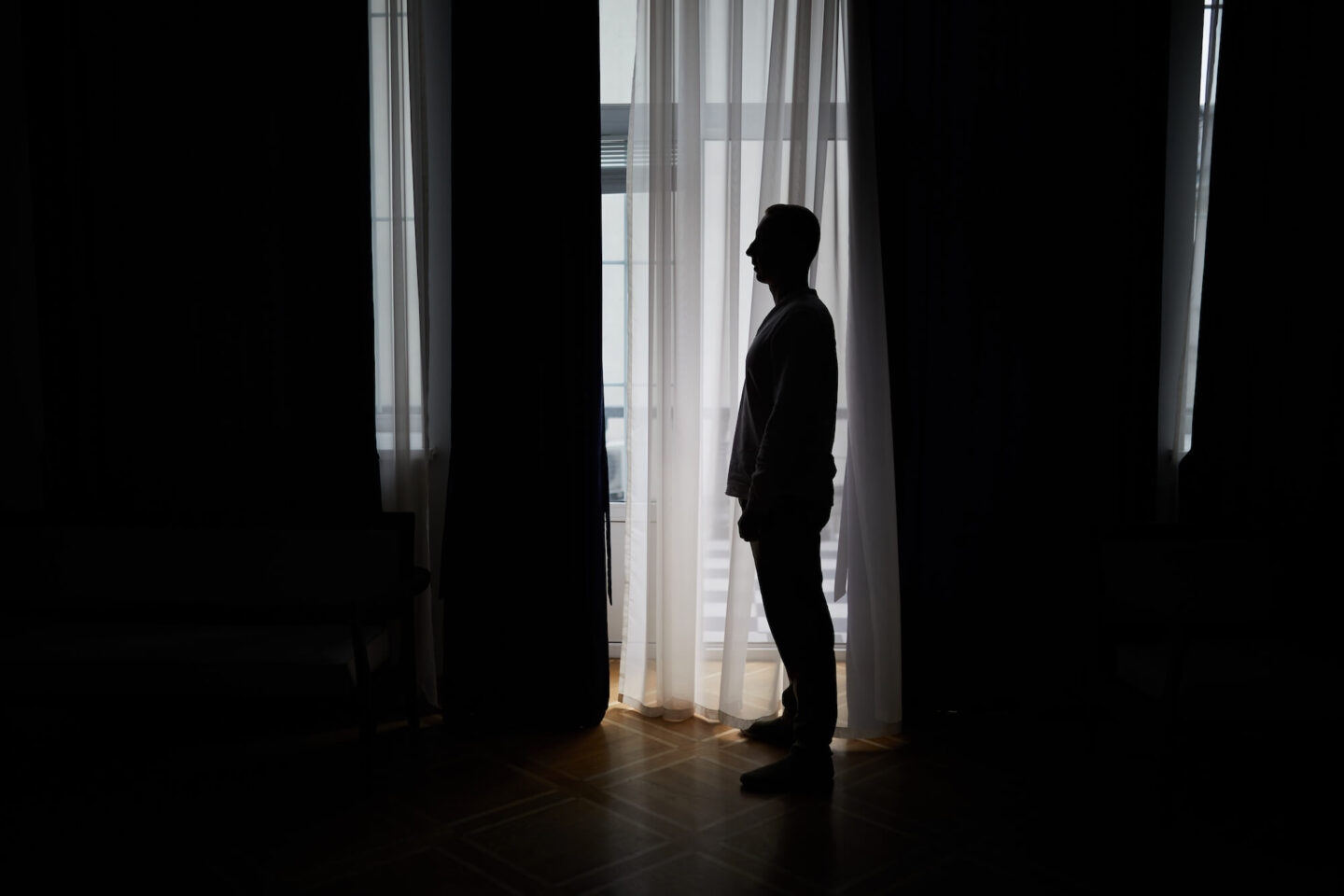We meet Katherine in the library of the Institute for Human Sciences in Vienna (Institut für die Wissenschaften vom Menschen, IWM), where global researchers gather for conferences and seminars from all around the world. IWM was founded in 1982 by Polish philosopher Krzysztof Michalski and two German colleagues in neutral Austria as a meeting place for Eastern European dissidents and prominent Western scholars. This intellectual exchange continues today.
The IWM is an institution where the Ukrainian voice is exceptionally strongly represented. Since 2014, it has run the “Ukraine in European Dialogue” program, inspired by historian Timothy Snyder. In response to the full-scale invasion in 2022, IWM quickly launched the “Documenting Ukraine” program to support Ukrainian artists, writers, journalists, and scholars. Upon entering the Institute, you’ll see photographs of Ukrainian documentarians on the walls and Ukrainian literature or literature about Ukraine on the shelves.
Katherine Younger is an American researcher who studied at Harvard University and later defended her dissertation under Timothy Snyder at Yale University. She has numerous awards and fellowships and has been working since 2014 to integrate Ukraine into the intellectual and public discourse of Europe and the world beyond.
Katherine arrives for our conversation in a traditional Ukrainian embroidered shirt, which she wears as part of her daily life. She travels to Ukraine as her second home and isn’t deterred by air raid alerts. She refers to her life in Vienna as that of an “accidental immigrant,” balancing between the U.S., Austria, and Ukraine.
I can confidently call her an ambassador for Ukraine, and this conversation is about research, intellectual exchanges, the importance of Ukraine’s voice in the global context, and how Katherine came from working in archives to creating them.
You first studied public administration and then delved into history, completing your dissertation at Yale on the role of the Greek Catholic (Uniate) Church in European politics from the times of the partitions of Poland to the early 20th century. What drew you to Eastern European history, particularly Ukraine?
This story is very American. I grew up in central Illinois, about two hours south of Chicago. The soil there is similar to that in southern Ukraine. In the 1990s, when foreigners could buy land in Ukraine, a farmer from my hometown built a large farm in the Kherson Oblast. By some coincidence, in 2003, my first trip abroad was to the village of Chervona Poliana near Nova Kakhovka. We spent ten days there.
I was still in school and much younger than everyone else on the trip—mostly farmers curious about how Ukrainian agriculture worked, or just our community members.
That experience opened my eyes to a world far larger than I could imagine. Ukraine completely captivated me.
When I entered Harvard, I was already interested in the region. I decided to study something like political science. I worked on post-Soviet state-church relations in both Russia and Ukraine.
Gradually, I shifted back in time to the 19th century, as this period laid the foundations that still influence today. I believe the 19th century marks the dawn of modernity.
How did you learn Ukrainian?
Life takes you on crazy paths. When I was 15, my best friends in school decided to start learning Russian. I said, “Okay, I’ll join you.” Peer influence is strong at that age. Russian was my first foreign language. But after my trip to Kherson Oblast, I realized it was important to be able to speak Ukrainian with people.
So, over time, I made learning Ukrainian my priority.
As a Harvard student, I was sent for a semester to the Ukrainian Catholic University (UCU) in Lviv. I studied Ukrainian there and took some history courses, like one on the history and theory of nationalism taught by Yaroslav Hrytsak. He was my first Ukrainian history professor, and when I returned to Harvard for my final year, I had a chance to study with Serhii Plokhy.
It was Plokhy who advised me: “If you want to pursue this topic, you should work with Tim Snyder.” That’s how I ended up completing my PhD dissertation with Snyder as my supervisor.
I’ve been incredibly fortunate to work with people who explain why Ukrainian history is so interesting and important.
Was it difficult to work with Ukrainian sources?
I spent a lot of time in various archives holding materials on Eastern Galicia: the State Archive of the Lviv Oblast, the Central State Historical Archive, and the Przemyśl State Archive. I also worked in Moscow, St. Petersburg, Rome, and Vienna, because I believe Eastern Galicia is important not only in its own right but in a broader European perspective.
One of the most fascinating characters in my work is a Pole who converted to Greek Catholicism and later to Orthodoxy.
Although Hipolit Zygmunt Terlecki [a Ukrainian public figure, priest, writer, and publicist who lived from 1808–1885 — Ed.] is relatively well-known, certain aspects of his work haven’t been fully understood or recognized in the European or even global context.
Once, while sitting in the Stefanyk Library, trying to decipher his handwriting, I realized he worked in 11 languages. He was a global figure. If we only view this as provincial history, we lose a lot.
This fits into the broader academic trend of provincializing Ukraine and thinking of it as just peasants and priests.
In reality, Ukraine is much richer. We just need to refocus our lens.
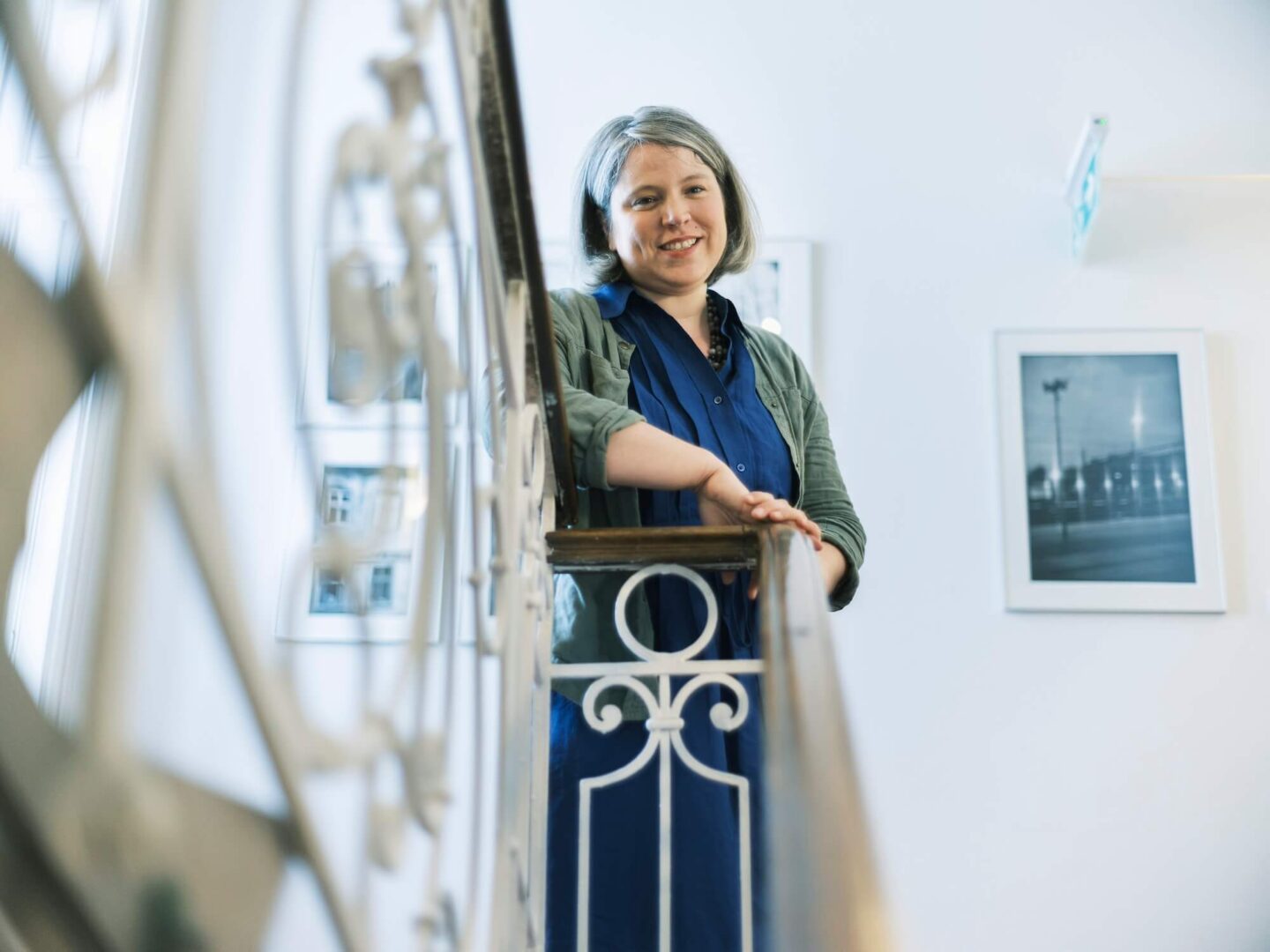
Since 2014, you’ve been at IWM in Vienna, leading the “Ukraine in European Dialogue” program. This was the period following Ukraine’s Revolution of Dignity. What did the revolution mean to you personally, and how did it lead to the creation of the Ukrainian department at IWM?
I spent January and February 2014 in Lviv. I was going to the Stefanyk Library’s manuscript department, and at one point, we archivists dropped everything and watched live streams from Kyiv on our computers. For me, it deepened my connection to Ukraine.
A similar sense of solidarity arose here at IWM. Timothy Snyder and Marci Shore were here, along with Ukrainian colleagues like Mykola Riabchuk and Katia Mishchenko. There was a community closely following events in Ukraine.
It was then that IWM decided we needed to be physically present in Ukraine. So, in May 2014, a group of about 40 public intellectuals from across Europe and North America came to Kyiv to reflect on Ukraine’s situation together. IWM, together with the Krytyka publishing house, Kyiv-Mohyla Academy, and other partners, co-organized the “Ukraine: Thinking Together” conference, which had a multilingual format—panels were held in six languages. We shared a solidarity that transcended national and linguistic boundaries.
We pondered: What can IWM do for Ukraine in the future? How can we support Ukrainian colleagues? How can we integrate these invaluable Ukrainian voices into the broader European discussion?
We were fortunate that people from the Temerty Foundation asked Timothy Snyder: “How can we continue this spirit?” And Tim replied, “I know what to do.” That’s when the idea for the “Ukraine in European Dialogue” program was born.
We knew discussions about Ukraine and Europe’s future couldn’t happen without Ukrainians.
The program is flexible in its disciplinary and thematic content because we invest heavily in defining the dialogue between Ukraine and Europe. Of course, this primarily involves rethinking history.
However, the first academic director of the program, Tania Zhurzhenko, has a broader disciplinary background. She is a political scientist, anthropologist, and gender studies researcher, having brought all these perspectives to the program. I had the honor of working under her leadership during the first three years of the program’s existence.
Over the last decade, through the “Ukraine in European Dialogue” program, we have hosted more than one hundred fellows, who spent between one and nine months at IWM working on their chosen projects.
These projects are varied in discipline, chronology, and format, as journalists, public intellectuals, writers, and artists may all contribute.
I believe this diversity is what has made the program so vibrant.
(In May 2024, Mariia Shynkarenko, a Ukrainian political scientist focused on Crimean Tatar identity and resistance, became the research director of the “Ukraine in European Dialogue” program.)
As Marci Shore writes in the preface to the new edition of her book on the Ukrainian revolution: “Ukrainians do know why they are fighting; their defense of their country is, among other things, a revolt against nihilism. They are fighting for Ukraine and for “Europe” at stake on the Maidan, the “Europe” that is the Platonic, ideal essence of “Europe”—Europe as freedom, self-determination, human rights, dignity.” In your opinion, how will Ukraine change or is already changing Europe?
By choosing to fight and resist, Ukrainians remind Europe and Europeans every day of who they are.
The entire European project is often explained by the myth of peace, but if you think about it, it’s not just about the absence of war; it’s rather a positive choice to be part of something shared. It’s about embracing certain values despite differences.
There is a tendency among non-Ukrainians to say, “Oh, you are so naive about Europe,” implying that Ukrainians have an idealized notion of Europe, is that really so? My response to that is, “Ukrainians are not naive. They refuse to accept reality as it has been and strive to make it closer to what it should be.”
A few years ago, I had the opportunity to edit the English translation of Myroslav Marynovych’s memoirs. I reflected on what the Helsinki movement was really about. I realized that despite the flaws in international structures and the acceptance that these flaws would likely always exist, people in the movement refused to resign themselves to that reality. They made personal sacrifices to live according to moral standards and a moral code.
We will strive for adherence to principles that exist on paper, even if the current mechanisms will never fully achieve that. We are not thinking about giving up this fight.
This is a recurring thought I’ve had again and again over the last two and a half years during the full-scale war.
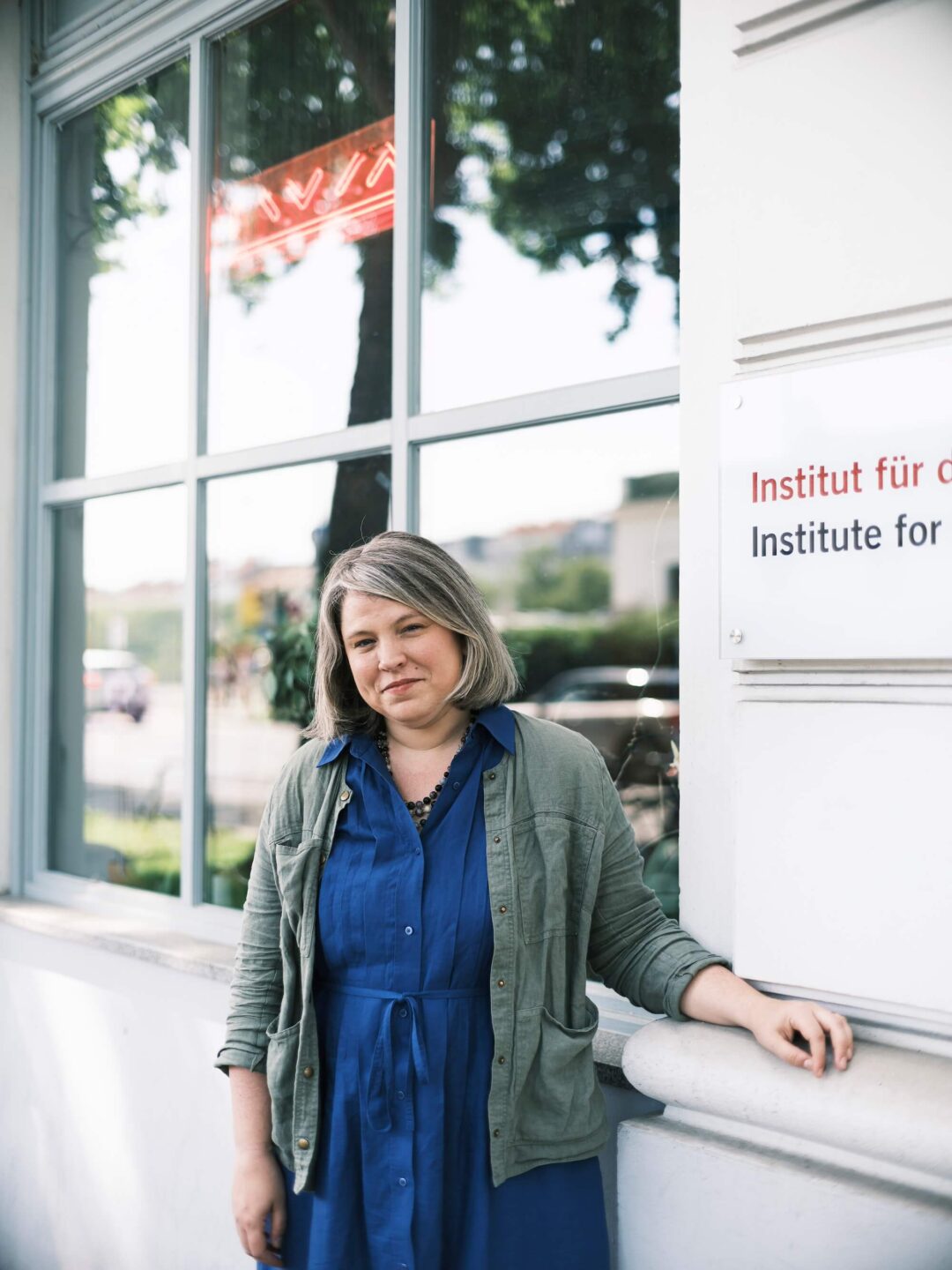
In one of his talks, Timothy Snyder compared Ukraine to Czechoslovakia in 1938. But unlike Czechoslovakia, Ukraine did not capitulate and, in doing so, may have prevented the outbreak of World War III. How do you think Ukraine’s resilience has influenced Russian imperialist politics?
This is not just a current issue. As a historian, I would say we need to look back several centuries.
The clash between the Ukrainian idea and Russian imperialism has fundamentally shaped what the Russian imperial project really is.
We cannot draw direct lines from Catherine the Great to Putin, but we do see echoes. I think Serhii Plokhii has traced some of these most clearly.
Russian imperialism has never truly understood its own purpose. There has always been a crisis of identity and self-definition behind it. I have studied the period after the Crimean War quite extensively, where there was such a massive defeat that the imperial mindset could hardly imagine it.
They defined themselves as grand as possible. Scale was the only way they could show their significance. They saw they could hold large territories under their control. Yet, the Ukrainian case has always been uniquely problematic in this regard.
Some Russians claim that Ukrainians and Russians built the empire together in the Soviet Union. But what does that partnership mean? Deportations, repression, banning their own language—not just Ukrainian but also Crimean Tatar, Greek, Polish, and so on. What do you think about this so-called partnership?
I believe it’s a flawed way to understand what the Soviet project was as a whole. The connection between the concept of Soviet and Russian is not entirely linear. Researchers are now working to understand what “Soviet” truly meant.
The approach that was long taken in European and North American academia to study the Soviet Union perpetuated some of these problems—what did it mean for Russians and Ukrainians to be partners within the Soviet project?
There were people who had both nationalities listed in their passports, as the USSR allowed. There were people who had Ukrainian nationality on paper but were part of the Soviet apparatus. There were also people who were part of the Soviet apparatus but came from other places within the republic [likely referring to the “fifth column,” which indicated nationality — Ed.]. Of course, the Ukrainian Republic—due to its size, geographic location, economic development, and population—was an extremely important component of the Soviet Union.
But that doesn’t necessarily mean that it was an inseparable part of the system, perpetuating it.
Unfortunately, Russians cannot imagine their empire without Ukraine. No one wanted to believe in a full-scale Russian invasion of Ukraine, although there were precedents for Russia invading independent states: Afghanistan, Transnistria, Georgia, and other countries. Russia has violated the established system of international guarantees based on rules of peace and human rights. On February 24, we woke up in a different world. And in March 2022, here at IWM, the “Documenting Ukraine” program was launched. You invited Ukrainian writer and cultural manager Kseniia Kharchenko to lead this program. Tell us how your team experienced the day of the invasion in Vienna and how you managed to launch this program so quickly.
I remember that on the morning of February 24, we all gathered here in the library, and then we went to the Minoritenplatz for a demonstration.
Among us were Ukrainian fellows. We felt a desire to mobilize. We all, as a community, went to demonstrations and collected donations. I’m proud of how the IWM community responded to the war.
Later that day, the IWM board met in this library, and we began thinking about our institutional response to the full-scale invasion. Especially because we already had established networks in Ukraine, we realized that we had both the opportunity and a kind of moral obligation to act as quickly as possible.
That day, we began discussing the creation of a program focused on documenting what was happening. This partly stemmed from Tim and I being historians and understanding the importance of sources.
We also knew it would be a multidisciplinary project involving writers, cultural figures, filmmakers, journalists, and scholars. We couldn’t imagine at the time how large it would become.
We initially thought we would support ten people—perhaps a few writers working on book projects or collecting oral histories. But since Tim is internationally known and we have many partners eager to work with us in Ukraine, we were able to scale up quickly. Our first grants for the “Documenting Ukraine” program were issued in April 2022. By the end of the year, we had over one hundred grants, and now we have more than 350.
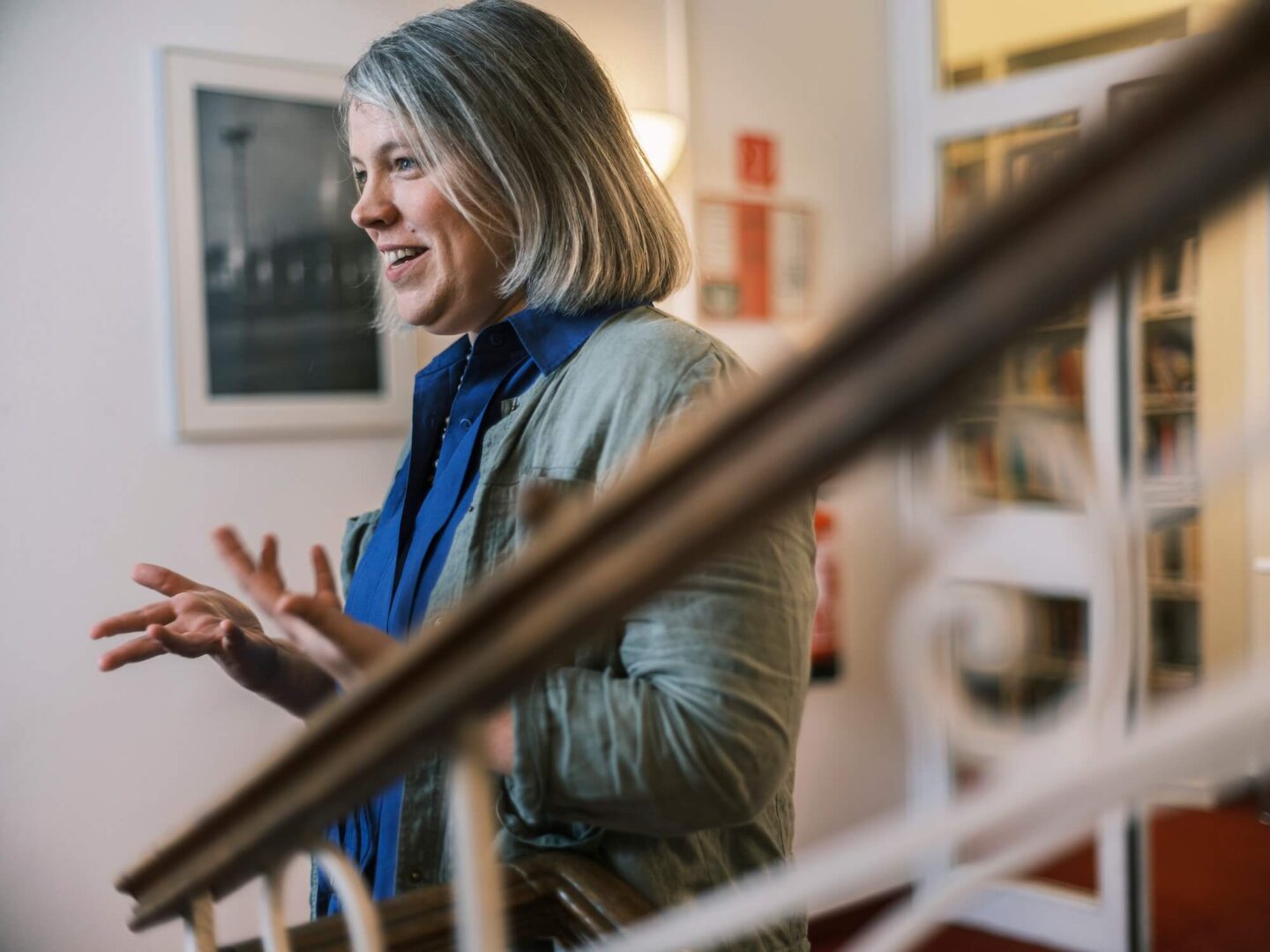
Recently, it was announced that IWM is opening the Institute for Documentation and Exchange (INDEX) in Lviv. This is a unique case where new international institutions are being established during times of war and instability. Can you tell us more about the ideas behind this? What are INDEX’s main goals?
Around February 2023, the idea began circulating among several people: should we create something like IWM in Ukraine?
The conversations went like this: “Oh, wouldn’t it be great to have such a library in Ukraine”; “What if we organized fellowships for Ukrainians and international visitors in Ukraine?”
These conversations gained momentum, and we thought maybe we are the people who could try to do something like this.
We established connections with donors who trust us. We built relationships within Ukraine, so we know who to talk to and collaborate with. We aim to build something that will last for decades.
In general, our work is developing in two directions.
One is related to intellectual meetings and conversations between people from different geographic regions, disciplines, and professions.
The second is related to ongoing documentation. Can we somehow bring this together into one institution?
Based on this, we developed the INDEX concept.
We will continue our support program, and we have secured funding for it until 2027. We will also significantly expand our efforts to help people preserve the materials they have collected or created.
We will host fellows from both abroad and Ukraine. We wanted to create opportunities for those Ukrainians who cannot, do not want to, or have decided not to leave their country.
We’ve been fortunate to collaborate with the Center for Urban History, with whom we’ve had joint fellowships since the full-scale invasion. But now we will also be able to host our own fellows, and we hope to help people from outside Ukraine better understand the country.
On one hand, the war is still ongoing, and we can’t yet fully grasp this tragedy and its impact on society. On the other hand, the need for documentation is incredibly high because this serves as an important archive of information in various formats that could be an excellent foundation for researching the war and Ukraine’s transformation. This year, INDEX held a symposium in Lviv called The Most Documented War. In your opinion, has the “inevitable war fatigue” affected the quality of documentary projects about Ukraine?
The symposium, which we’ve been organizing for the second year in a row together with the Center for Urban History, is truly one of those priceless moments when we can gather and recharge our energy to keep working.
Documenting is tough work. It can be isolating and emotionally draining. Conducting interviews with people who have gone through things no one should experience is a challenging task.
I also think there’s a challenge regarding the timeline. What exactly counts as documenting the present, compared to how we’ll tell the story in the long term?
Olena Stiazhkina said that a good novel about this war won’t be written for decades, and I completely agree. When you’re in the middle of events, it’s hard to see. But what can we do? We search for meaning.
Together with INDEX, we’ve just launched a bilingual book series on documenting and archiving called War Stories. It’s now being published in Ukrainian and will later be available in English.
One of the ideas we are pursuing in this series is the notes for the future. We need to write down thoughts so they aren’t lost.
Because not only are the facts and events important, but also how we process them, what we feel at the moment, and the frameworks we use to understand them.
If we don’t record this, it will be difficult to revisit these thoughts in a year, let alone five or ten years.
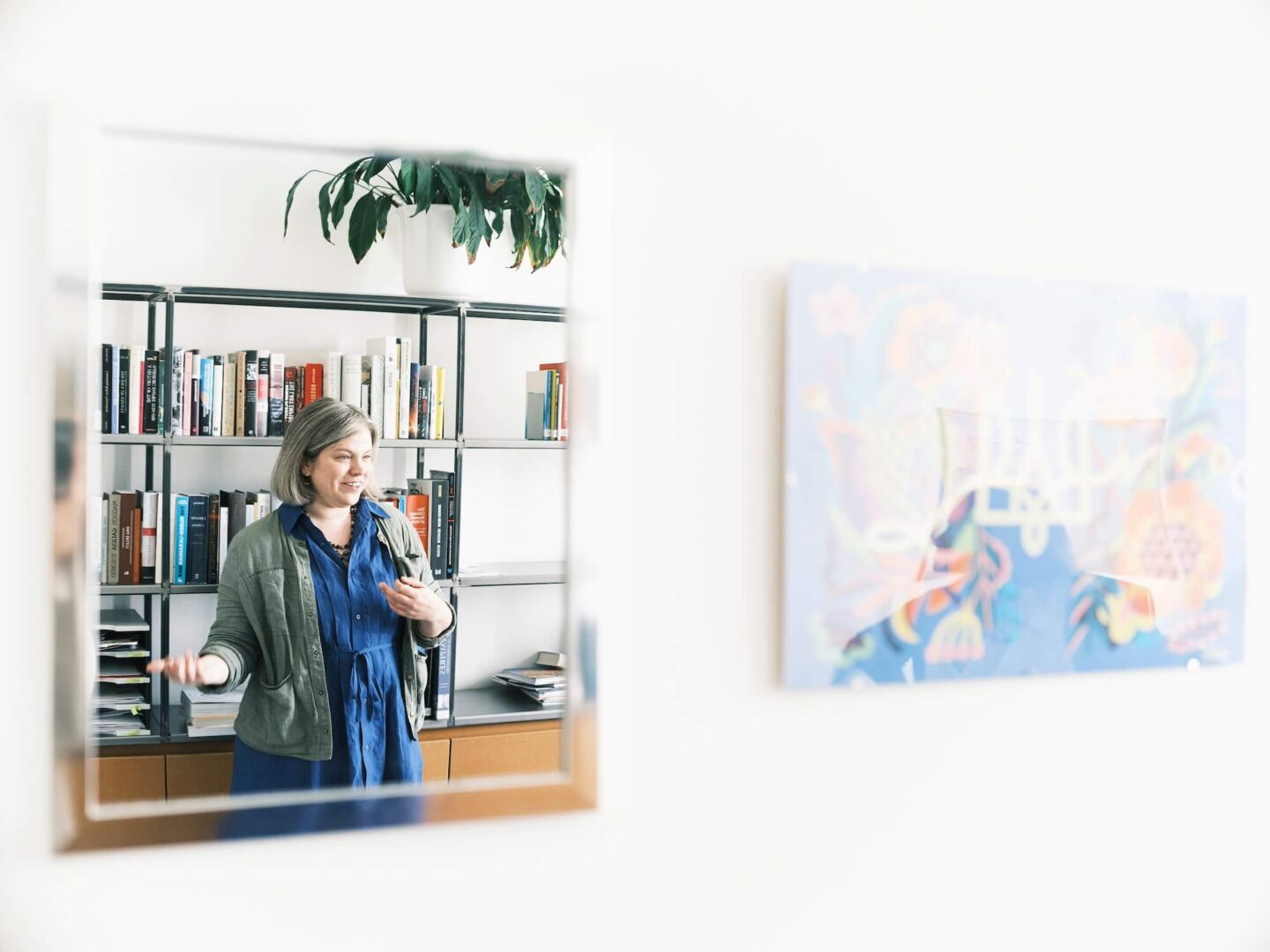
Could you tell us about the Institute’s funding, and the foundations that support it?
We’re incredibly grateful to the Temerty Foundation (Canada) for supporting IWM over the years and now for being ready to back INDEX, recognizing the importance of long-term commitments.
We’re also thankful to the foundations that helped us document Ukraine from the start. These include Arcadia Fund (UK), Bosch Stiftung (Germany), Alberto Motta Foundation (USA), and Porticus Foundation (Netherlands).
These are our main donors and partners, and they’re all glad that we mention them.
How do you see the development of this institution?
It’s important for us to be able to adapt to circumstances. That’s why we see INDEX as an institution whose mission and activities may change over time. One thing we consider fundamental is our commitment to strengthening institutional life in Ukraine in a broader sense.
This is why one of our priorities is collaborating with other institutions, helping think through what other types of institutions can be created or developed.
So, we are in Lviv right now for several very practical reasons, but Lviv won’t be the endpoint of what we are and where we work. It’s important from the start to say that we have a nationwide vision.
Lviv is one of the safest places in Ukraine, though there have been numerous attacks here as well, and missiles have hit not only critical infrastructure but also residential buildings. INDEX invites international guests to Lviv. What approach does INDEX take regarding the safety of its guests?
When we were in Lviv for the symposium, at least half of our international guests had to take leave from work just to be able to come to Ukraine, as institutions across Europe have banned travel there.
So, one thing we and other scholars interested in Ukraine are trying to do is find ways to encourage financial institutions, universities, and other bodies to allow their people to travel to Ukraine.
We don’t leave them on their own. They are in premises nearby, where INDEX staff are also present. They receive information on what to do when the sirens go off.
The building we’re in—the same one where the Center for Urban History is located—has a shelter in the basement.
Our 2025 budget includes significant provisions for generators, lamps, and similar items because we need to ensure fellows can continue working no matter the circumstances.
If foreign institutions don’t allow their researchers to come to Ukraine, even to relatively safe regions, there will be a huge knowledge gap.
Therefore, one of the things we and other scholars interested in Ukraine are working on is finding mechanisms to encourage foundations to collaborate with Ukrainian scholars.
Ukraine will remain a top priority on Europe’s agenda for a long time.
What is your professional dream?
2022 brought an odd shift in my professional life and how I think about archives. From someone who uses archives, I’ve become someone who creates them.
My biggest goal is to be part of the process of reflecting with my Ukrainian colleagues on how we can most rationally, ethically, and deeply preserve, process, and bring back to life the materials emerging from this war.
I see this as a task for the next decades of my life, no doubt about it.
Would you like to write a book about Ukraine yourself?
I’m interested in how imperial politics of the 19th century unfolded, and I want to finish my book on the Greek Catholic Church in the 19th century. I can’t wait to be able to return to the projects we set aside after February 24.
Translation — Iryna Chalapchii
§§§
[The translation of this publication was compiled with the support of the European Union and the International Renaissance Foundation within the framework “European Renaissance of Ukraine” project. Its content is the exclusive responsibility of the authors and does not necessarily reflect the views of the European Union and the International Renaissance Foundation]
